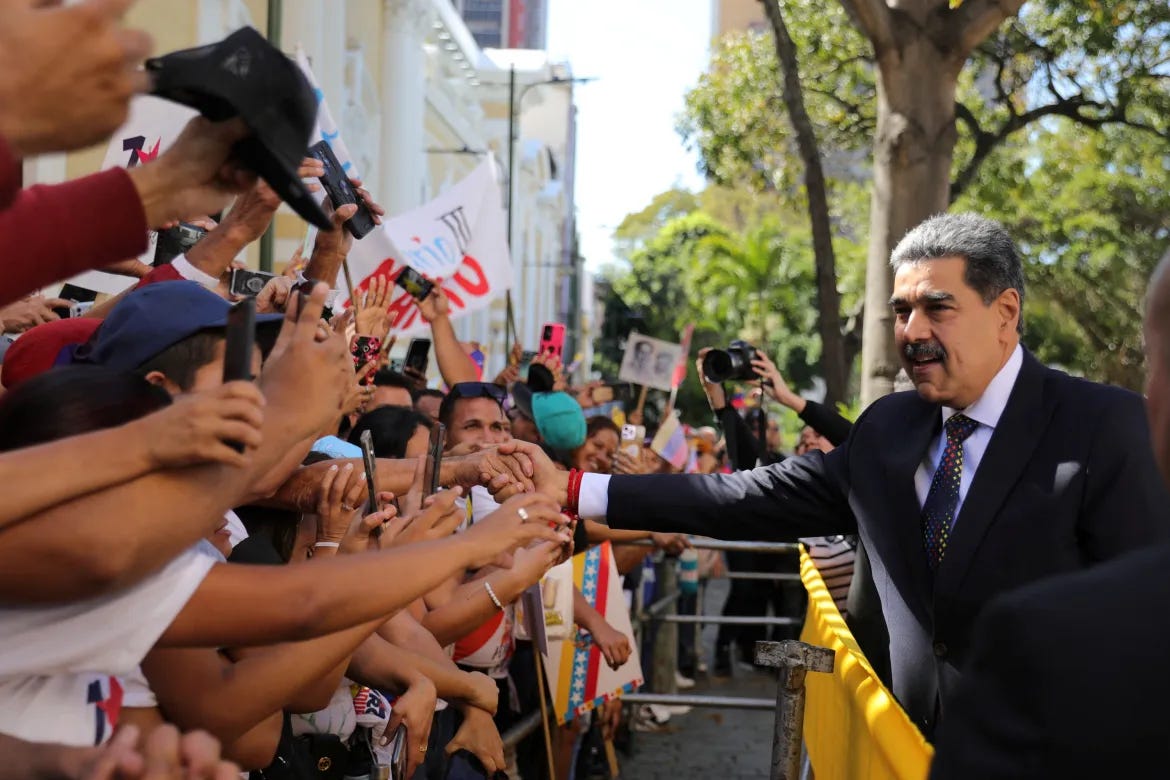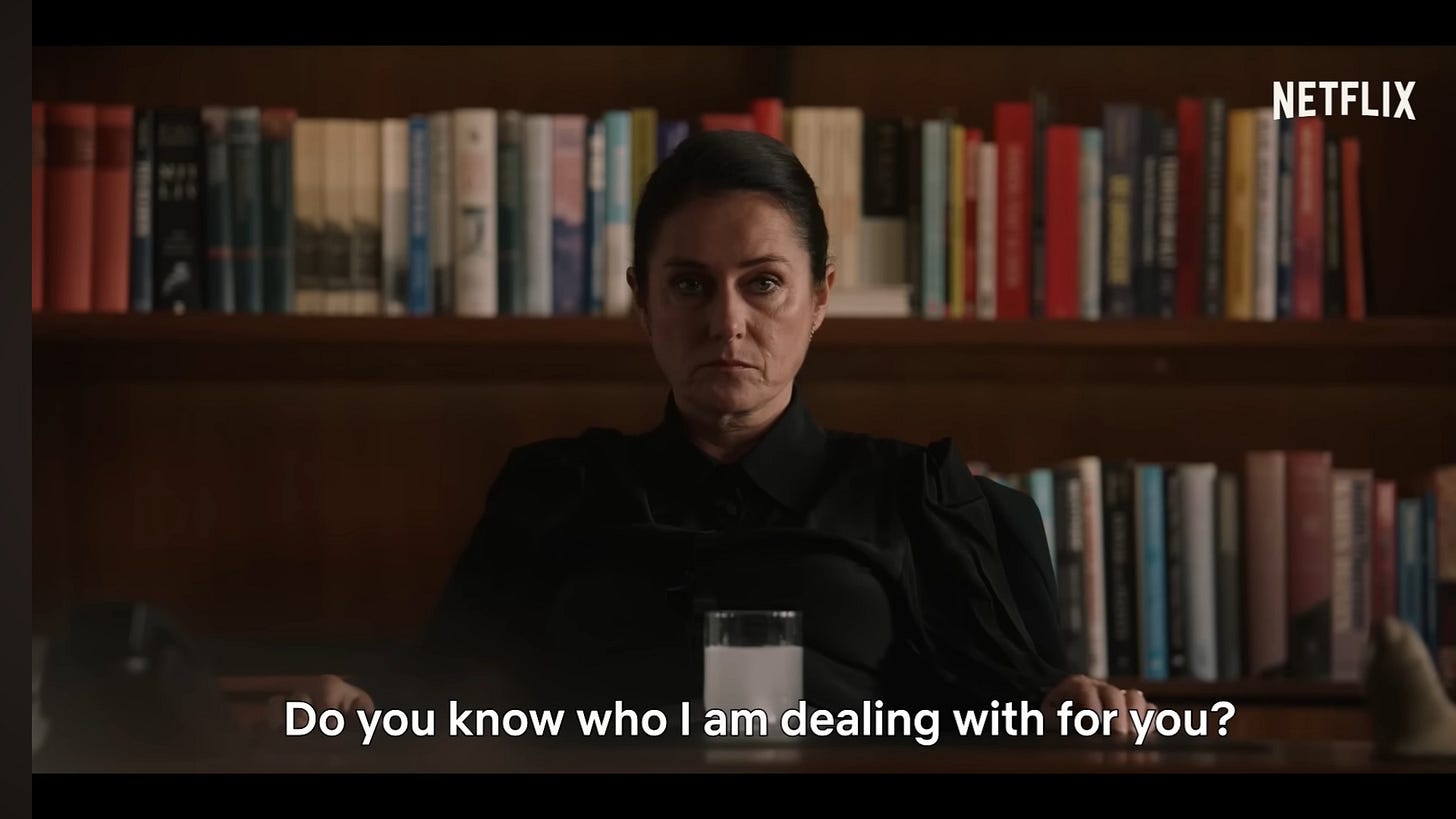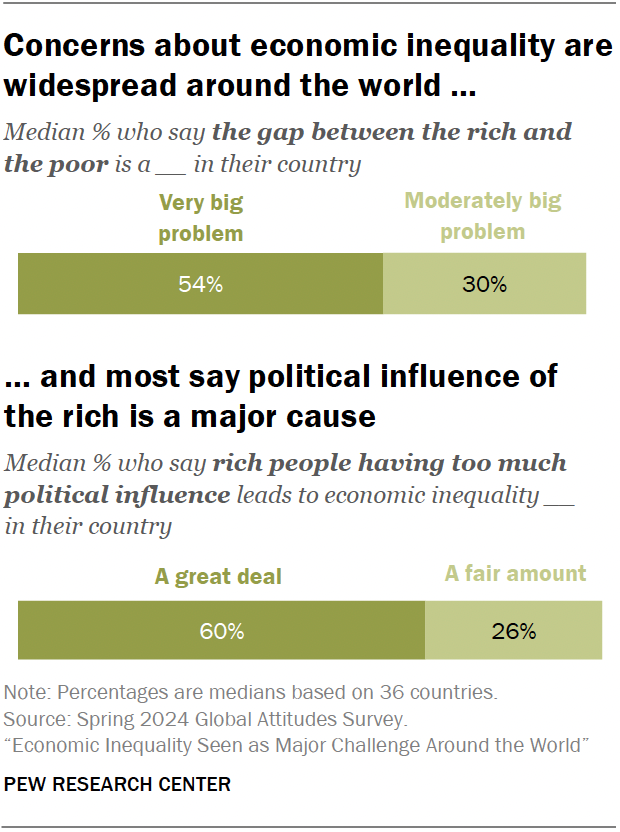This week…
Your reading time is about 5 minutes. Let’s start.
Should Adam Price bring back Borgen (2010-2013, 2022) and the indomitable Birgitte Nyborg (played by Sidse Babett Knudsen) for yet another season? I’ve watched this series twice, at least, and in the fourth season, which came out in 2022—nine years after the third—there was a great focus on Greenland’s sovereignty.
While many Western political thrillers tend to paint Russia and China (as well as North Korea and Iran—or any countries in the Middle East, really) as the bad guys, Borgen specifically name-dropped the U.S. as well. This series has been said to have “an uncanny ability to predict and, at times, influence political events,” and I don’t think I will argue against that.
Helle Thorning-Schmidt, who became Denmark’s prime minister the year after Borgen’s premiere, credited the series for helping her become the country’s first female leader. She is now the co-chair of Meta’s oversight board. Which leads us neatly into this week’s theme…
Your Wikipedia this week: Brandolini’s law
And now, a selection of top stories on my radar, a few personal recommendations, and the chart of the week.
ICYMI: The Previous Block was about press freedom, AInfluencers, and cultish behaviours.
CORRECTION NOTICE: None notified. ON THE MEDIA
Musk, Zuck and the business of chaos: Why interfering in European politics and abandoning fact-checks are about the bottom line
Shougat Dasgupta for Coda:
Norway’s Prime Minister Jonas Gahr Støre finds it “worrying that a man with enormous access to social media and huge economic resources involves himself so directly in the internal affairs of other countries. This is not,” tutted Støre, “the way things should be between democracies and allies.”
Germany’s Olaf Scholz says he is trying to “stay cool” despite being labeled “Oaf Schitz,” as Musk openly cheers for a far-right, pro-Putin party before next month’s federal elections. “The rule is,” Scholz told Stern magazine, “don’t feed the troll.”
Britain’s Keir Starmer has had to deal for days with an onslaught of inflammatory posts about historical sexual abuse cases, with Musk using his platform to resurrect decades-old stories about grooming gangs in northern England. He finally bit back, declaring that those “”spreading lies and misinformation” were “not interested in victims,” but “interested in themselves.”
But Italy’s Giorgia Meloni broke ranks with her counterparts, praising Musk as a “great figure of our times” while negotiating a $1.6 billion SpaceX deal – after a telling weekend visit to Trump’s Mar-a-Lago.
You already know how I feel about fact-checking, don’t you. Loosely linked:
Global fact-checkers were disappointed, not surprised, Meta ended its programme by Ananya Bhattacharya for Rest of World.
Huge problems with Instagram and Facebook changes, says oversight board by Graham Fraser for BBC.
Meta is abandoning fact checking—this doesn’t bode well for the fight against misinformation by Ned Watt (Queensland University of Technology), Michelle Riedlinger (Queensland University of Technology), and Silvia Montaña-Niño (The University of Melbourne) for The Conversation.
ON THE INTERNET
Misinformation on TikTok: How Documented examined hundreds of videos in different languages
Lam Thuy Vo for Documented:
Investigating mis- and disinformation in various languages presents a litany of issues: people who spread false information tend to delete accounts, requiring journalists to archive accounts before they are deactivated. Much of the content that we need to look into is in audiovisual formats, making it very difficult to run simple analyses around topics that are mentioned. When trying to understand this content we also often face a huge volume of it, making any manual approach to understanding this information particularly difficult.
In the course of several months of working with community correspondents from various backgrounds, Documented developed technical and methodological approaches to managing misinformation reporting projects about TikTok.
Read on! Loosely linked:
Are you falling for wellness misinformation online? by Adrienne Matei for The Guardian.
The internet is filled with fake reviews by Haleluya Hadrero for AP.
UK universities join retreat from Elon Musk’s X, citing misinformation on platform by Andy Bruce for Reuters.
ON SCIENCE
The publisher of the journal Nature is emailing authors of scientific papers, offering to sell them AI summaries of their own work
Maggie Harrisson Dupré for Futurism:
In an email to journal authors obtained by Futurism, Springer told the scientists that its AI tool will “maximise the impact” of their research, saying the $49 package will return “high-quality” outputs for marketing and communication purposes. The publisher’s sell for the package hinges on the argument that boiling down complex, jargon-laden research into digestible soundbites for press releases and social media copy can be difficult and time-consuming—making it, Springer asserts, a task worth automating.
“We know how important it is to communicate your research clearly and effectively to both your peers and the broader public, but it can be tedious and time-intensive to create concise and impactful texts for different audiences,” reads the email. “That’s why we’re excited to introduce our new Media Kit designed to help you expand the reach and impact of your work.”
Per the email, the package includes a roughly 250-word “plain language summary” designed to “simplify” research for the public; a roughly 300-word “research brief” that offers a “concise summary” for academic and scientific peers; a short, AI-spun audio summary; and social media copy characterized as “ready-to-use content” for promoting work “across platforms.”
Does it give you the ick or nah? Loosely linked:
From anecdotes to AI tools, how doctors make medical decisions is evolving with technology by Aaron J. Masino (Clemson University) for The Conversation.
How do we democratise scientific research? by C. Brandon Ogbunu for Undark.
The age of wonder meets the age of information by Whitney Barlow Robles for Jstor Daily.
Other curious links, including en español et français

LONG READ | The man making a business out of China’s burnout generation by Chang Che for The Guardian.
INFOGRAPHIC | How Iran moves sanctioned oil around the world by Paul Carsten and Prasanta Kumar Dutta for Reuters.
From posting on Facebook to posting bail: How Nepal cracks down on critics by Sunita Neupane for Global Press Journal.
Sheinbaum toma distancia de López Obrador al blindar derechos de la mujer por Dalila Escobar en Proceso.
Un laboratorio sexual en casa por Mar Manrique en Watif.
Cómo los videojuegos se convirtieron en el motor de la IA moderna por Pedro Isasi Viñuela (Universidad Carlos III) en The Conversation.
Intelligence artificielle et crise climatique, voici la génération Bêta par Cécile Bernard dans Radio-Canada.
Existe-t-il un « langage jeune » ? par Auphélie Ferreira (Université de Strasbourg) dans The Conversation.
Comment le fact-checking est né en 1942 pour traquer les rumeurs par Pascal Froissart (Sorbonne Université) dans The Conversation.
What I read, listen, and watch
I’m reading Into the Riverlands (2022) by Nghi Vo, the third novella in the Singing Hills Cycle, which I started reading last year.
I’m listening to why AI art sucks so much on Some More News.
I’m watching the Nigerians who moved to play football in Cambodia on CNA Insider.
Chart of the week
Richard Wike et al. at the Pew Research Center published a survey of 36 nations that found widespread public concern about economic inequality.






